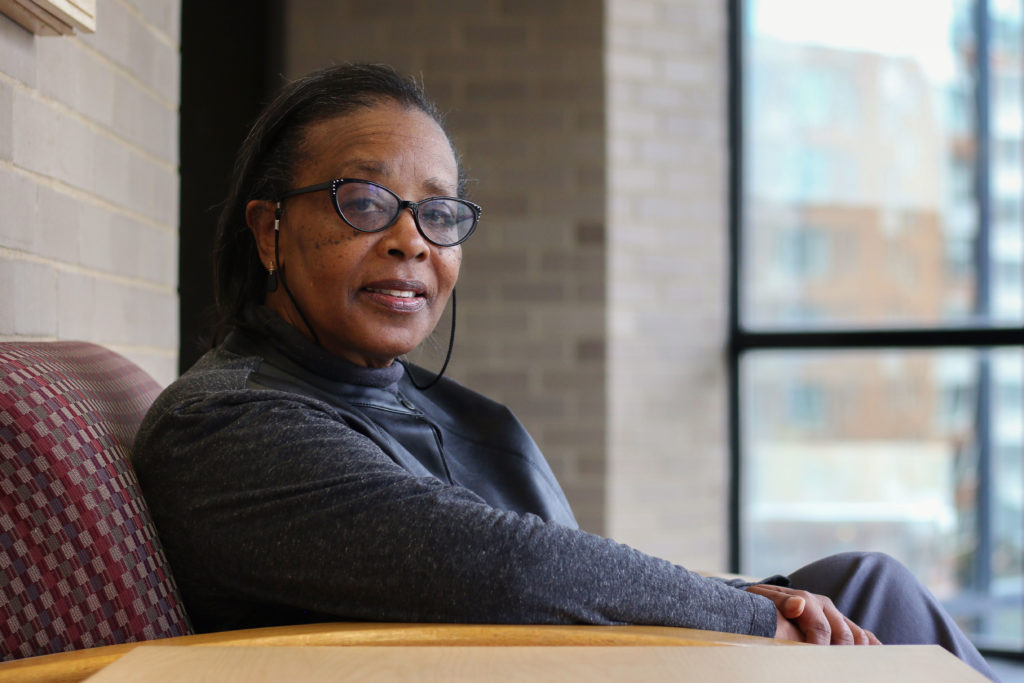The Institute for African Studies is offering a new seminar series for faculty and students to learn more about modern African politics and culture.
The three seminars will be led by young scholars specializing in African studies and will include a discussion of political issues in Kenya, the war on terror in Nigeria and legislative politics in Africa, respectively, according to an email from the institute last week. Faculty and officials said the seminars will encourage discourse on African political issues and provide a platform for future research projects on the subjects discussed.
The first seminar hosted Thursday will be led by Mai Hassan, an assistant professor at the University of Michigan. The second event will be taught by Daniel Agbiboa, an assistant professor at George Mason University, on Tuesday, and the third event on Feb. 25 will be led by Ken Opalo, an assistant professor at Georgetown University. All three speakers did not return multiple requests for comment.
Jennifer Cooke, the director of the Institute for African Studies, said the speakers were selected to underscore Elliott School of International Affairs Dean Reuben Brigety’s “strong commitment” to the institute and its research.
Brigety launched the institute in 2016 and has since worked with faculty to expand course and event offerings and bolster the center’s research profile. When the dean first came to GW in 2015, faculty said they hoped Brigety’s expertise in African relations would push GW to the frontlines of international affairs studies of the continent.
“The seminar series will expose our Africa-related and broader political science faculty to these ideas as we think about where to go next with our Institute for African Studies and possible research and teaching directions,” Cooke said in an email.
She said the dean and faculty in the institute picked experts who specialize in elections, ethnic conflict and security issues all centered around African affairs. She said many of the major issues today are at play in Africa, which she said has one of the fastest-growing economies in the world.
“This series responds to our aspiration for the Elliott School Institute for African Studies to be a hub for intellectual inquiry and public-policy discourse on the state of Africa today and the many challenges and opportunities that lie ahead,” she said.
Yvonne Captain, an associate professor of Latin American film and literature and international affairs, said the seminar series will provide attendees fresh discussion and research ideas focusing on topics like contemporary African society and sub-Saharan African politics.
The series is formatted to “embrace” a wide spectrum of speakers rather than just one event, she said.
“A lot of what is taught comes from people who are not from those cultures, which in itself is not bad, but it helps to include voices from those cultures because they can provide insights that would not necessarily be possible from people who grew up only in the U.S. or in Europe,” Captain said.
She said Brigety has been “very supportive” of the institute, not only by bringing in speakers for the seminar series but also by working to secure more funds to support similar events.
“He is doing a great deal of fundraising in that regard, so eventually – it’s a very young institute, it’s the youngest of the institutes – this will be a great deal,” she said. “I suspect that it will achieve its goal of being the premier academic institute for African studies in the D.C. area.”
Melani McAlister, a professor of American studies and international affairs, said the new seminars will fulfill the institute’s “desire” to bring together faculty from across the University who all study African affairs but do not always collaborate with one another.
“GW, like a lot of big universities, has the issue that sometimes the right hand doesn’t know what the left hand is doing, and so people are doing great work in the Africana Studies Program in Columbian College, for example, but how can we make sure that people know each other and are in conversation?” she said.




